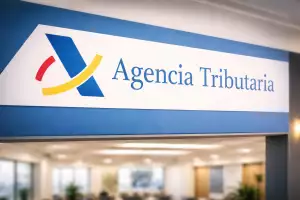If you are working and suffer an accident while providing services, or if you are working and suffer an illness that makes it impossible for you to provide services. It is necessary to differentiate between
WORK ACCIDENT:
The definition is contained in Article 156 of the LGSS: An occupational accident is any bodily injury that the worker suffers on the occasion of or as a consequence of his work .
As can be seen from the definition, an occupational accident can occur either as a consequence of work or on the occasion of work.
Thus, the concept includes accidents occurring in itinere, i.e. on the way to and from work, as well as those occurring in any other situation in which the worker is at work (acts of representation of workers, work-related illnesses, etc.).
Examples of workplace accidents are tripping over a cable in the office and suffering injuries in the fall, falling from a scaffold when during construction work, suffering cuts when operating company machinery, etc.
COMMON DISEASE:
A non-occupational accident shall be considered to be that which, in accordance with the provisions of Article 156, does not have the character of an occupational accident.
Health disorders that do not have the status of occupational accidents or occupational diseases, in accordance with the provisions of Article 156, paragraphs 2.e), f) and g) and Article 157, respectively, shall be deemed to constitute a common disease.
What benefits can you obtain in the event of a temporary disability, whether due to an accident at work or a common illness?
You will be entitled to apply for temporary disability benefit.
In order to receive the temporary disability benefit, in both cases, the worker must be affiliated and registered or in a situation assimilated to registration with the Social Security .
- However, if the incapacity is due to a common illness, a prior contribution period of 180 days in the previous 5 years is required.However, if the disability is due to a common illness, a prior contribution period of 180 days in the previous 5 years is required.
- In the case of an accident at work is not required to have previously contributed, so this cause of incapacity can be assessed from the first day of a person’s employment.
As for the possible beneficiaries of the subsidy, although the law only refers to employment as a field in which an occupational accident can occur, workers subject to the special regime for self-employed workers (RETA) can also access the subsidy for both occupational accidents and common illnesses.
How does this Temporary Disability benefit operate?
In this regard, the differences between the two contingencies are found in the time when the subsidy starts to be paid and in the amount of the subsidy(art. 173 of the LGSS):
- In the case of common illness, 60% of the regulatory base is paid from the 4th day of sick leave up to and including the 20th day, and from the 21st day onwards 75% is paid.
- In the case of an accident at work, 75% of the regulatory base is paid from the day following the day of the absence from work, which is assumed to be the day on which the accident occurs. The day of the accident will be paid in full by the employer as a day’s salary.
However, in this aspect, it will be necessary to follow the provisions of the collective bargaining agreement, which may improve the employee’s rights (for example, by recognizing that he/she will receive 100% of his/her salary from the first day of sick leave, through a disability supplement that will have to be paid by the company).
who pays the temporary disability benefit in case of occupational accident and common illness?
- In the case of employees:
- In general, payment is made by the Instituto Nacional de la Seguridad Social (INSS), the mutual insurance company collaborating with the Social Security or the Instituto Social de la Marina (ISM), as the case may be.
- For common illness, payment between the 4th and 15th day is the responsibility of the employer, but after the 16th day, the INSS, the mutual insurance company or the authorized company chosen by the employer will pay (art. 173 of the LGSS).
- In the case of an accident at work, the company will be responsible for payment by the mutual insurance company that has chosen to collaborate with the Social Security.
- In any case, payment will be made by the employer, as a delegated payment and with the same periodicity as wages, although there are exceptional cases in which payment is made directly by the INSS, the ISM or the collaborating mutual insurance company (direct payment of benefits, which must be requested in any case by the affected party).
- For the self-employed. The payment will be made directly by the Collaborating Mutual or the competent managing entity.
How long does the temporary disability benefit last in the event of an accident at work or common illness?
In the case of both illness and accident, the maximum duration of the benefit is legally stipulated at 365 days, extendable for another period of 180 days if a cure is foreseen during this period (art. 169.1.a of the LGSS).
When does the temporary disability benefit expire?
In the case of an accident at work or common illness, the benefit is terminated by the expiration of the maximum period established by law, or by receiving a medical discharge (whether or not this results in a declaration of permanent disability), which can occur at any time during the period during which the person is on medical leave.
It is also possible that the subsidy is terminated because the worker voluntarily requests medical discharge, because he/she becomes a pensioner due to retirement, and, obviously, also due to death.
It is possible that the worker does not show up for the medical examinations established by the Social Security professionals, which will also result in the termination of the subsidy.
HOW TO PROCEED IF WE HAVE AN ACCIDENT OR SUFFER FROM A COMMON ILLNESS?
In the event of an accident at work -> We must request an assistance form from the company for the company’s mutual insurance company.
If the accident is very serious, the police may appear and the Labor Inspectorate may go to the work center, and may initiate a procedure to charge benefits against the company if they detect that the work accident occurred because the company did not comply with the obligations of safety and prevention of occupational hazards.
In case of common illness -> We go to our health center and they will proceed to issue a sick leave report.
Now it is no longer obligatory for workers to send their sick leave reports to the companies; they must only inform the companies that they are on sick leave, and the same in the event that they have already been discharged.
There is a FIE file of the social security where they inform if the company’s workers have registered medical leaves or medical discharges, but it is not an immediate means, therefore it is recommended that workers inform the companies in case of starting a period of temporary incapacity.
Who pays us and what amounts?
As I indicated above, the company will always pay last as a delegated payment.
With respect to the general amounts indicated, we must also review each labor agreement to see if we have a Temporary Disability Complement benefit.
Sheila Quiroz Sifuentes
Lawyer Expert in Labor Law
M&CAbogados







